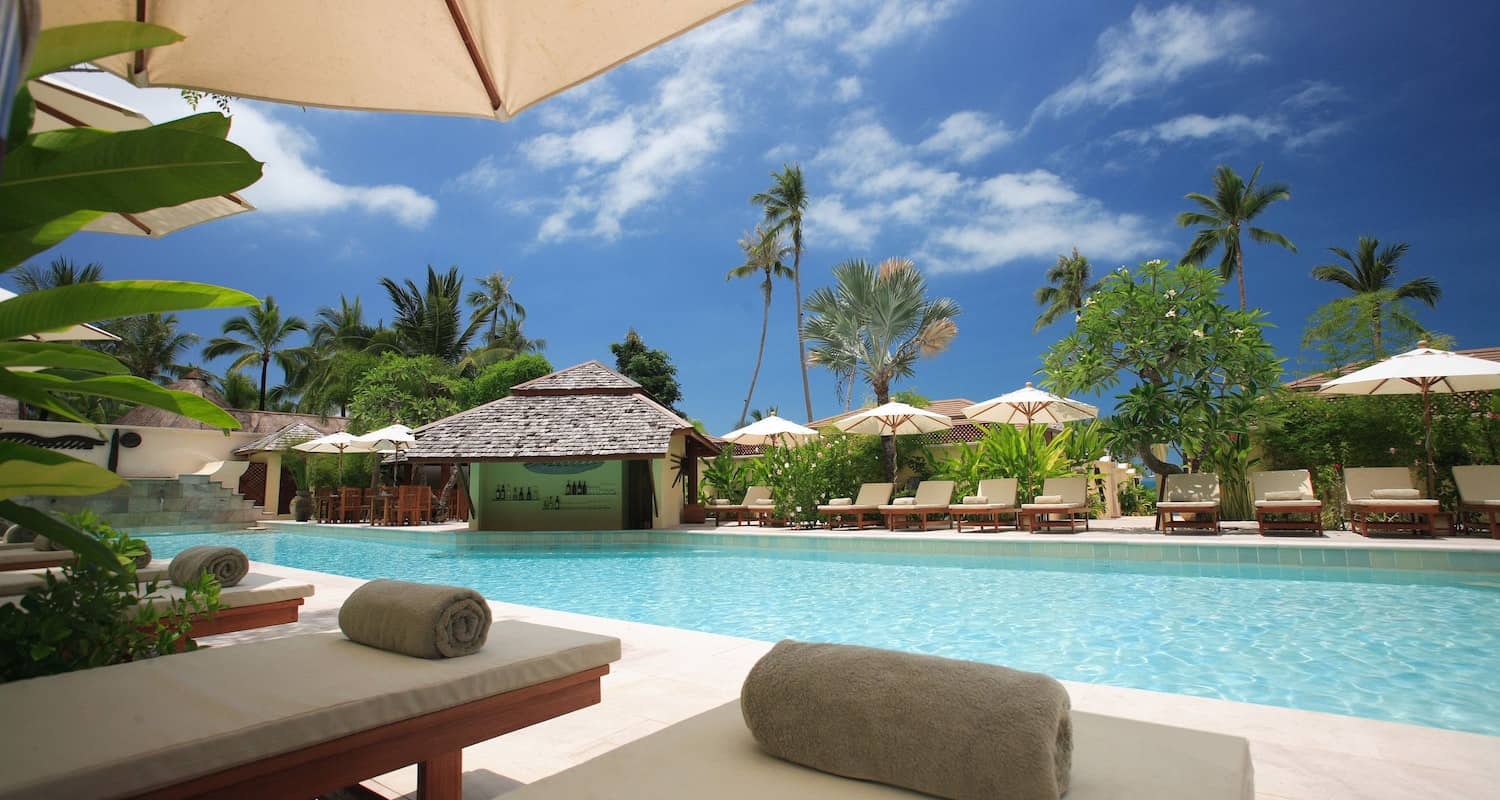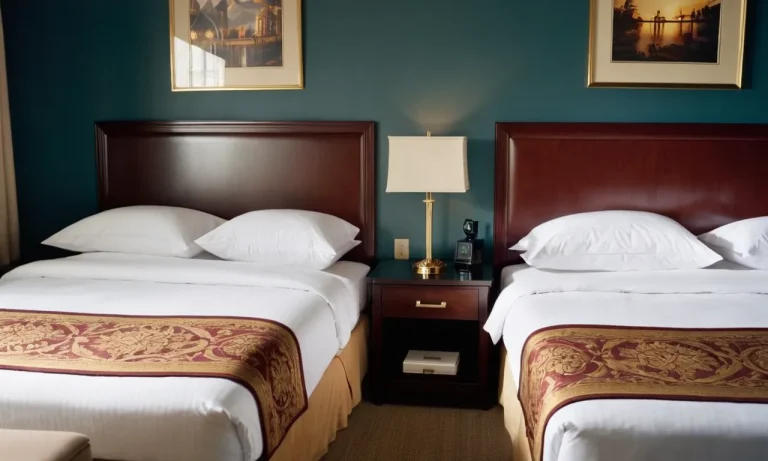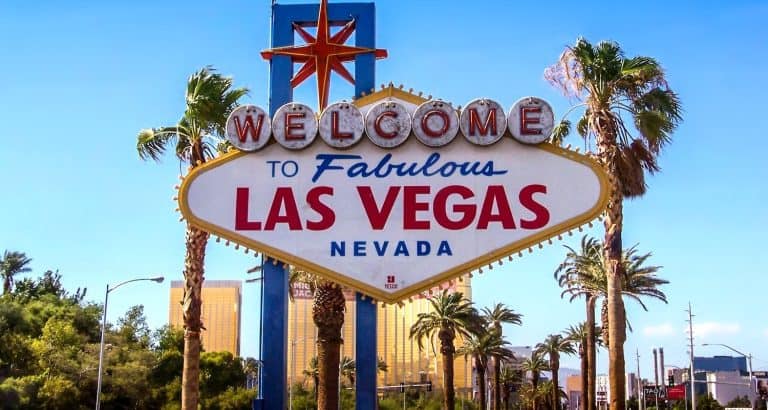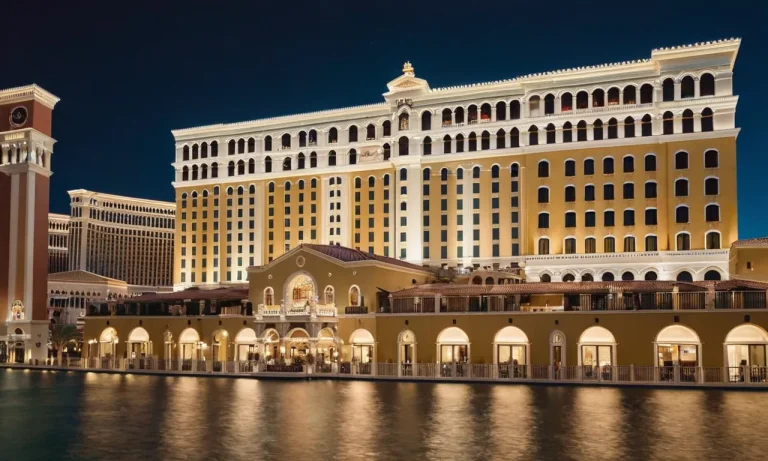Hotel vs Apartment: Which Accommodation Option is Right for You?
When it comes to finding the perfect accommodation for your next trip, the age-old debate between hotels and apartments often arises. Whether you’re a seasoned traveler or a first-time explorer, the choice between these two options can significantly impact your overall experience.
If you’re short on time, here’s a quick answer to your question: Hotels offer convenience, amenities, and a more traditional hospitality experience, while apartments provide a home-like atmosphere, privacy, and often more space and cost-effectiveness for longer stays.
In this comprehensive article, we’ll delve into the pros and cons of both hotels and apartments, exploring factors such as cost, amenities, privacy, and suitability for different travel purposes. By the end, you’ll have a clear understanding of which option aligns best with your preferences and travel needs.
Cost Comparison: Hotels vs Apartments
Nightly Rates and Long-Term Savings
When it comes to short stays, hotels often offer competitive nightly rates, especially during off-peak seasons or with discounts and promotional offers. However, for extended stays, apartments can be a more cost-effective option.
Renting an apartment typically involves a monthly fee, which can be significantly cheaper than paying for a hotel room night after night. According to data from ApartmentGuide.com, the average cost of a one-bedroom apartment in the U.S. is around $1,200 per month, while the average nightly rate for a hotel room is around $130.
For a 30-day stay, an apartment would cost roughly $40 per night, compared to $3,900 for a hotel room.
Additional Fees and Hidden Costs
While hotels may seem more affordable at first glance, they often come with additional fees and hidden costs that can quickly add up. These may include resort fees, parking charges, internet access fees, and even charges for amenities like the gym or pool.
Apartments, on the other hand, typically have a more straightforward pricing structure, with utilities and other basic amenities included in the monthly rent. According to a study by NBC News, hidden hotel fees can add up to 50% or more to the advertised room rate, making apartments a more transparent and potentially cheaper option in the long run.
Cost-Effectiveness for Extended Stays
For travelers planning to stay in a location for an extended period, renting an apartment can be a real money-saver. Not only do you avoid the nightly rates of hotels, but you also gain access to a fully-equipped kitchen, allowing you to cook your own meals and save on dining out expenses.
Additionally, apartments often offer more living space, which can be a game-changer for families or groups traveling together. 😊
According to a study by AHAParking.com, a family of four staying in a hotel for a month could spend upwards of $6,000, while renting a two-bedroom apartment could cost as little as $2,000, including utilities. That’s a potential savings of over $4,000! 🎉
| Accommodation | Average Cost (30 days) |
|---|---|
| Hotel Room | $3,900 |
| One-Bedroom Apartment | $1,200 |
| Two-Bedroom Apartment (Family of 4) | $2,000 |
While hotels offer convenience and amenities, apartments can be a more budget-friendly option, especially for longer stays. By considering your travel needs and crunching the numbers, you can make an informed decision on which accommodation option is right for you and your wallet.
Don’t forget to factor in any additional costs or discounts that may apply to your specific situation. Happy travels! 👏
Amenities and Services: What to Expect
Hotel Amenities: Pools, Gyms, and Concierge Services
When it comes to amenities, hotels often offer a range of luxurious facilities to enhance your stay. From sparkling pools to fully-equipped gyms, you’ll find everything you need to relax and stay active.
According to a survey by Statista, 55% of travelers consider a pool as an important hotel amenity. Additionally, many hotels boast concierge services, providing personalized assistance with everything from restaurant reservations to local recommendations. 😊
Apartment Amenities: Kitchens, Laundry Facilities, and More Space
On the other hand, apartments offer a more homely experience with amenities tailored for extended stays. Fully-equipped kitchens allow you to cook your own meals, saving money and adding convenience. Laundry facilities within the apartment complex are a game-changer, eliminating the hassle of finding a nearby laundromat. Moreover, apartments typically provide more living space, making them an excellent choice for families or those who prefer a more spacious environment.
Comparing Convenience and Accessibility
When it comes to convenience and accessibility, both hotels and apartments have their advantages. Hotels are often located in prime locations, offering easy access to popular attractions, restaurants, and transportation hubs.
However, apartments can provide a more local experience, immersing you in the neighborhood’s culture and giving you a taste of everyday life. Ultimately, your choice will depend on your priorities – do you value the luxury and amenities of a hotel, or the homely comforts and space of an apartment?
| Amenity | Hotels | Apartments |
|---|---|---|
| Pool | ✅ (55% travelers consider it important) | ❌ (Rare) |
| Gym | ✅ (Common) | ❌ (Rare) |
| Kitchen | ❌ (Limited or no kitchen facilities) | ✅ (Fully-equipped kitchens) |
| Laundry | ✅ (May have laundry services, but often at an additional cost) | ✅ (In-unit or shared laundry facilities) |
| Living Space | ❌ (Limited to room size) | ✅ (More spacious) |
So, whether you’re seeking a luxurious getaway or a home away from home, understanding the amenities and services offered by hotels and apartments can help you make an informed decision that aligns with your needs and preferences.
Don’t forget to research and compare options to find the perfect accommodation for your next adventure! 🎉
Privacy and Flexibility: Finding the Right Balance
Hotel Privacy: Shared Spaces and Staff Interactions
When it comes to hotels, privacy can be a mixed bag. While you have the privacy of your own room, you’ll be sharing common areas like lobbies, hallways, and amenities with other guests and staff. This can lead to more frequent interactions and potential disruptions.
According to a survey by TripAdvisor, 32% of travelers cited lack of privacy as a major drawback of staying in hotels. However, many hotels prioritize guest privacy through soundproofing, keycard access, and staff training to respect boundaries.
Apartment Privacy: Your Own Space and Freedom
Apartments offer a greater level of privacy and seclusion. With your own living space, kitchen, and entrance, you can enjoy a home-like environment without the constant presence of others. This can be especially appealing for longer stays or those seeking a more independent experience.
According to Statista, 68% of travelers prefer apartments or vacation rentals for stays longer than a week. However, apartments may lack some of the amenities and services provided by hotels, which could be a trade-off for some.
Flexibility in Accommodations and Schedules
When it comes to flexibility, apartments often have the edge. With your own kitchen and living space, you can follow your own schedule for meals, activities, and routines. This can be especially valuable for families with children or those with specific dietary needs.
Additionally, many apartments offer more flexible check-in and check-out times, allowing you to maximize your stay. 😊
Hotels, on the other hand, typically have more rigid schedules for meals, housekeeping, and amenity availability. However, they can offer greater flexibility in terms of booking options, with the ability to easily extend or shorten your stay based on availability.
According to Hotels.com, 47% of travelers cite flexible booking policies as a key factor when choosing a hotel.
Ultimately, the right balance of privacy and flexibility will depend on your personal preferences and travel needs. Whether you prioritize the seclusion and independence of an apartment or the convenience and services of a hotel, there’s no one-size-fits-all solution.
It’s all about finding the accommodation that aligns with your travel style and desired experience. 👍
Travel Purpose: Business, Leisure, or Extended Stays
Hotels for Business Trips and Short Stays
When it comes to business trips or short stays, hotels often emerge as the preferred choice due to their convenience and amenities tailored for travelers. Hotels offer a hassle-free experience, with services like 24/7 front desk assistance, daily housekeeping, and on-site dining options.
This can be particularly advantageous for busy professionals who value efficiency and want to focus on their work without worrying about household chores. According to a survey by HotelNewsResource.com, 76% of business travelers prefer hotels for their ability to provide a productive and comfortable environment.
Furthermore, hotels cater to the specific needs of business travelers with amenities such as meeting rooms, business centers, and high-speed internet access. These facilities make it easier to conduct meetings, presentations, or catch up on work during downtime.
Many hotels also offer loyalty programs and corporate rates, providing additional benefits and cost-savings for frequent business travelers.
Apartments for Longer Vacations and Relocation
On the other hand, apartments shine as the preferred option for longer vacations or relocation scenarios. With more space, privacy, and home-like amenities, apartments offer a sense of comfort and familiarity that can be invaluable during extended stays.
According to Statista, the global vacation rental market is expected to reach $113.9 billion by 2025, reflecting the growing demand for apartment-style accommodations.
Apartments typically come equipped with fully-functional kitchens, allowing travelers to prepare meals and save on dining expenses. They also provide separate living areas, bedrooms, and often laundry facilities, making them ideal for families or groups traveling together.
Additionally, many vacation rentals offer unique local experiences, immersing guests in the culture and lifestyle of their destination.
Balancing Work and Leisure in Different Accommodations
For those who need to balance work and leisure during their travels, the choice between a hotel and an apartment can be a delicate one. Hotels offer a more structured environment, with dedicated workspaces and amenities that facilitate productivity.
On the flip side, apartments provide a home-like setting that can be conducive to relaxation and rejuvenation after work hours.
One option to consider is a serviced apartment or an extended-stay hotel, which combines the best of both worlds. These accommodations offer the comforts of an apartment with the services and amenities of a hotel, allowing guests to enjoy a blend of productivity and leisure.
According to a report by HospitalityNet, the demand for serviced apartments has grown by 5.8% annually since 2015, highlighting their appeal for travelers seeking a balanced experience.
Ultimately, the choice between a hotel and an apartment depends on your specific travel needs, preferences, and budget. By carefully evaluating factors such as length of stay, purpose of travel, and desired amenities, you can make an informed decision that ensures a comfortable and enjoyable experience during your journey.
Location and Neighborhood Considerations
Hotel Locations: City Centers and Tourist Hotspots
Hotels are typically situated in prime locations, often in the heart of bustling cities or renowned tourist destinations. This strategic placement offers guests unparalleled convenience and easy access to major attractions, cultural landmarks, and vibrant nightlife.
For instance, hotels in cities like New York, Paris, or Tokyo are frequently nestled within walking distance of iconic sights, museums, theaters, and shopping districts. This proximity is a major draw for travelers seeking an immersive experience and the opportunity to explore a destination’s highlights without the hassle of lengthy commutes.
Apartment Locations: Residential Areas and Local Experiences
In contrast, apartments are typically found in residential neighborhoods, offering guests a glimpse into the authentic local lifestyle. These areas often boast a more relaxed ambiance, with fewer crowds and a greater sense of community.
Staying in an apartment allows you to experience the city like a local, indulging in the neighborhood’s unique charm, cuisine, and culture. You might find yourself strolling through charming streets lined with cozy cafes, family-owned shops, and lively parks frequented by residents.
This immersive experience can provide a deeper understanding of a destination’s true character and way of life.
Proximity to Attractions, Transportation, and Dining Options
When choosing between a hotel or an apartment, it’s crucial to consider the proximity to the attractions, transportation options, and dining experiences that align with your travel preferences. Hotels, particularly in major cities, are often strategically located near public transportation hubs, making it easier to navigate and explore the surrounding areas.
Additionally, they frequently feature on-site restaurants or are within walking distance of a variety of dining establishments, catering to diverse tastes and budgets.
Apartments, on the other hand, may require a bit more planning when it comes to accessing tourist attractions and transportation. However, they often offer a more authentic dining experience by being situated in residential neighborhoods with local eateries, markets, and hidden culinary gems.
According to a survey by VRBO, 64% of travelers prefer staying in apartments or vacation rentals to immerse themselves in the local culture and cuisine.
Ultimately, the choice between a hotel or an apartment largely depends on your travel priorities and desired experience. If you’re seeking the thrill of being at the epicenter of a city’s action and tourist attractions, a hotel might be the perfect fit.
But if you crave a more authentic, local experience and the opportunity to live like a resident, an apartment could be the way to go. Whichever option you choose, make sure to research the specific location and its proximity to the amenities and experiences that matter most to you for a truly unforgettable stay.
Conclusion
Choosing between a hotel and an apartment for your accommodation needs is a decision that requires careful consideration of your travel goals, budget, and personal preferences. While hotels offer convenience, amenities, and a more traditional hospitality experience, apartments provide a home-like atmosphere, privacy, and often more space and cost-effectiveness for longer stays.
Ultimately, the choice between a hotel or an apartment will depend on factors such as the length of your stay, your travel purpose, and your desired level of privacy and flexibility. By weighing the pros and cons of each option, you can make an informed decision that aligns with your specific needs and ensures a memorable and enjoyable travel experience.




